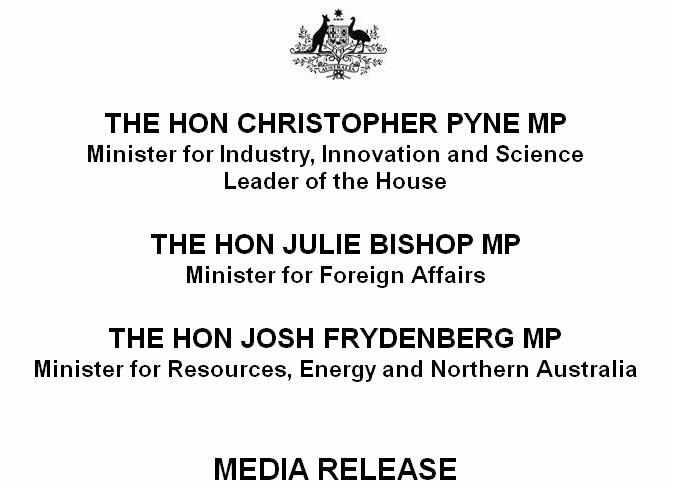

Published on the 29th April 2016 by ANSTO Staff

Australia has overnight been approved as a member of the Generation IV International Forum (GIF), a co operative international endeavour, joining 12 other nations and the European Union to work together on long term research on advanced nuclear technologies.
The Forum develops Generation IV technology and addresses not only the construction and operation of the next generation of nuclear power reactors, but also considers fuel efficiency, reducing waste production, and meeting stringent standards of safety and proliferation resistance.
Minister for Industry, Innovation and Science Christopher Pyne said Australia’s success in gaining membership is based on the landmark research infrastructure and world-class research capabilities and expertise at the Australian Nuclear Science and Technology Organisation (ANSTO) to contribute to the GIF’s goals.
“Australia’s invitation to join this important global project marks an exciting opportunity to be at the forefront of global innovation in the nuclear industry,” Mr Pyne said.
“Inclusion in the GIF further strengthens Australia’s position as a nation that has the research muscle to deliver innovations on the global stage.
“It reinforces the Government’s $1.1 billion National Innovation and Science Agenda, encouraging our best and brightest researchers to collaborate with international experts.
“ANSTO has particular research expertise in materials used in high-temperature and highly radioactive environments and in radioactive waste forms, through the development of Synroc, a modern solution for safely immobilising radioactive waste.”
GIF research is focused on six reactor designs that will deliver safe, secure, sustainable, competitive and versatile nuclear technology.
GIF expects that some of these reactor designs could be demonstrated and commercially rolled out in around 2030-2040, and current members are already developing and constructing prototype technologies.
“Australia’s membership of GIF is an affirmation of our international credentials in high-tech science and innovation,” Minister for Foreign Affairs Julie Bishop said.
“Australia has firm non-proliferation goals and nuclear safety objectives, and contributing to the global conversation on this level is an opportunity to assist in the research that is making nuclear technologies safer around the world in the long term.
“Australia will also be helping our neighbours and partners to more efficiently secure energy resources for the future, using even safer and more sustainable technology, which is in everyone’s interests.”
“A long term commitment to international research will further cement Australia’s position as a global energy technology leader.”
Minister for Resources, Energy and Northern Australia Josh Frydenberg said that Australia’s membership will help further our expertise in nuclear science and research.
“Australia has significant expertise and established infrastructure to contribute to this important forum. In addition, we have the world’s largest known uranium reserves which are being used to fuel energy production in a number of countries,” Mr Frydenberg said.
“This forum will help develop the technologies that will be integral to the future of the international nuclear industry.”